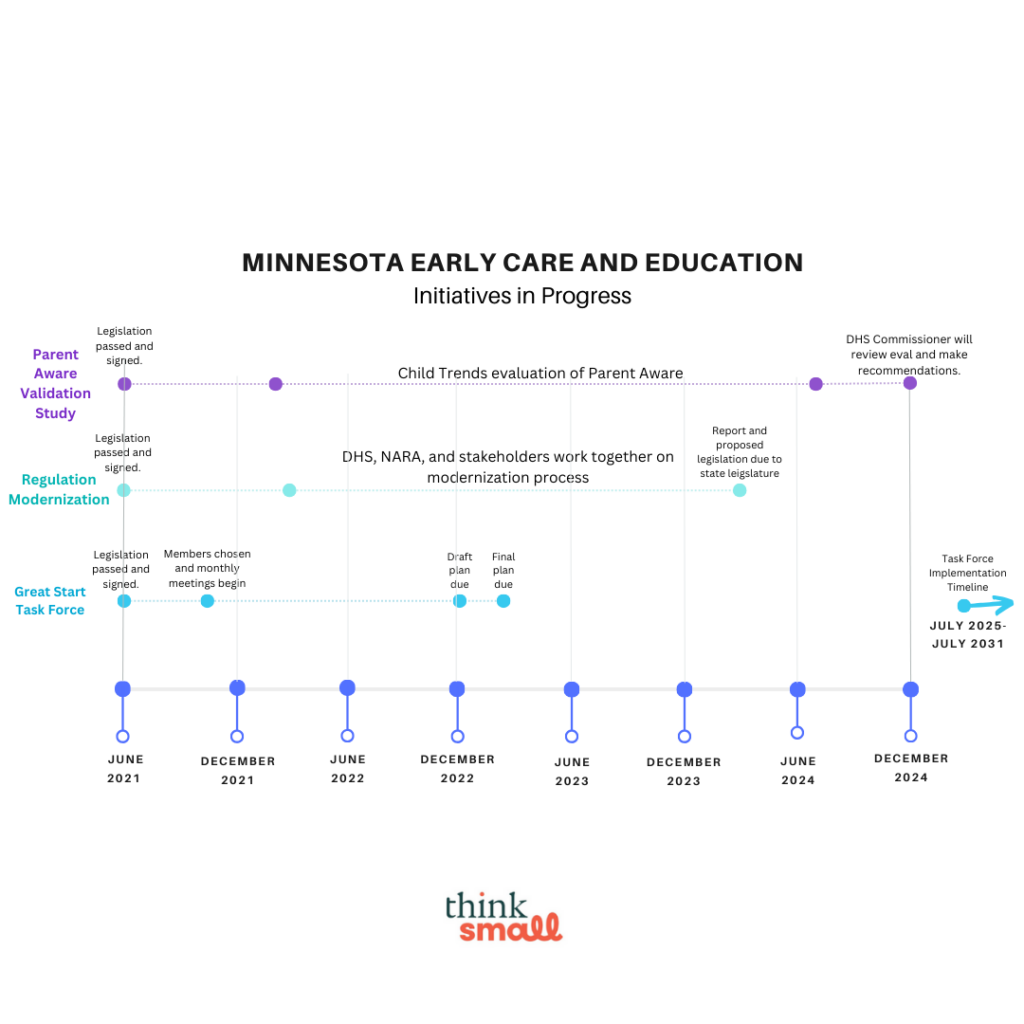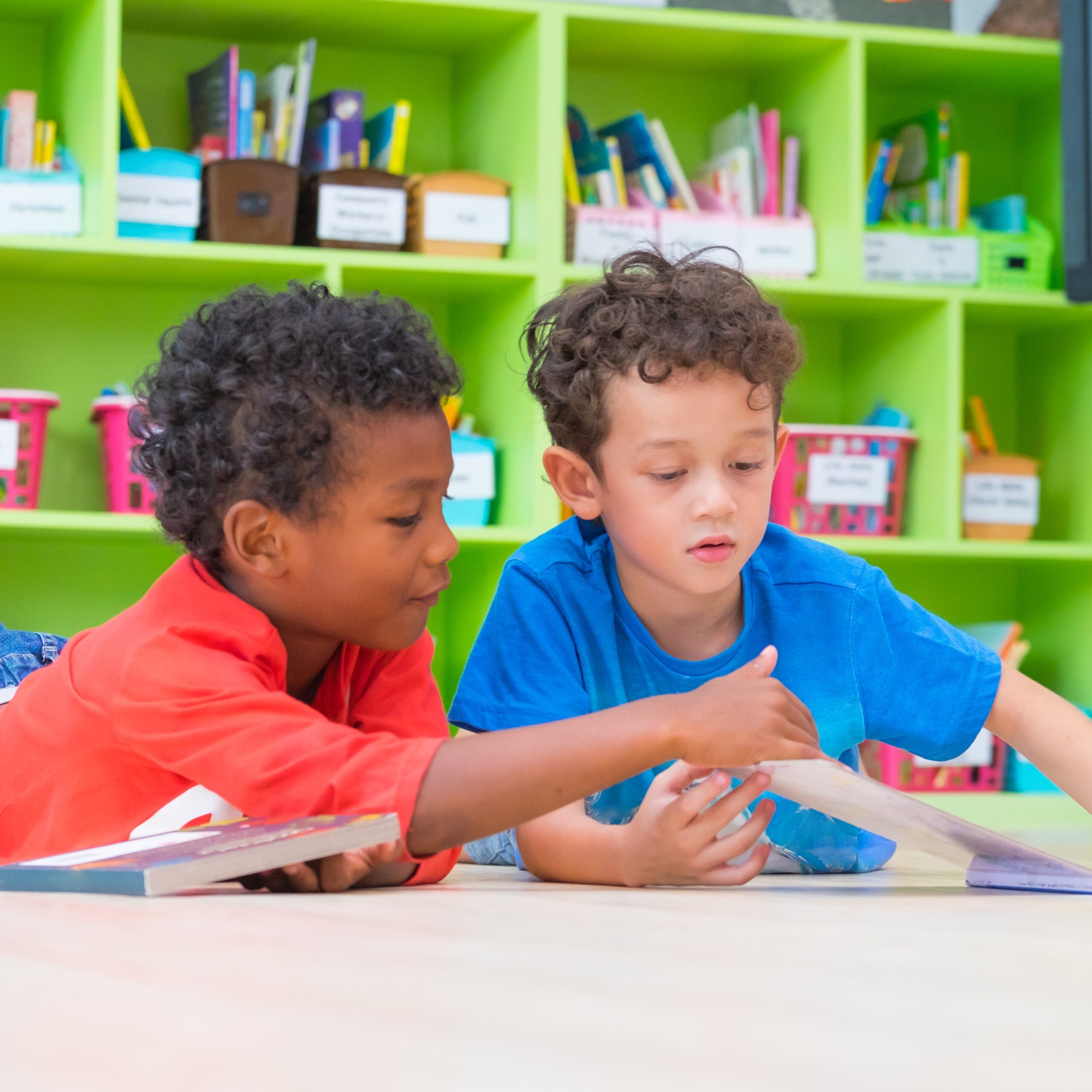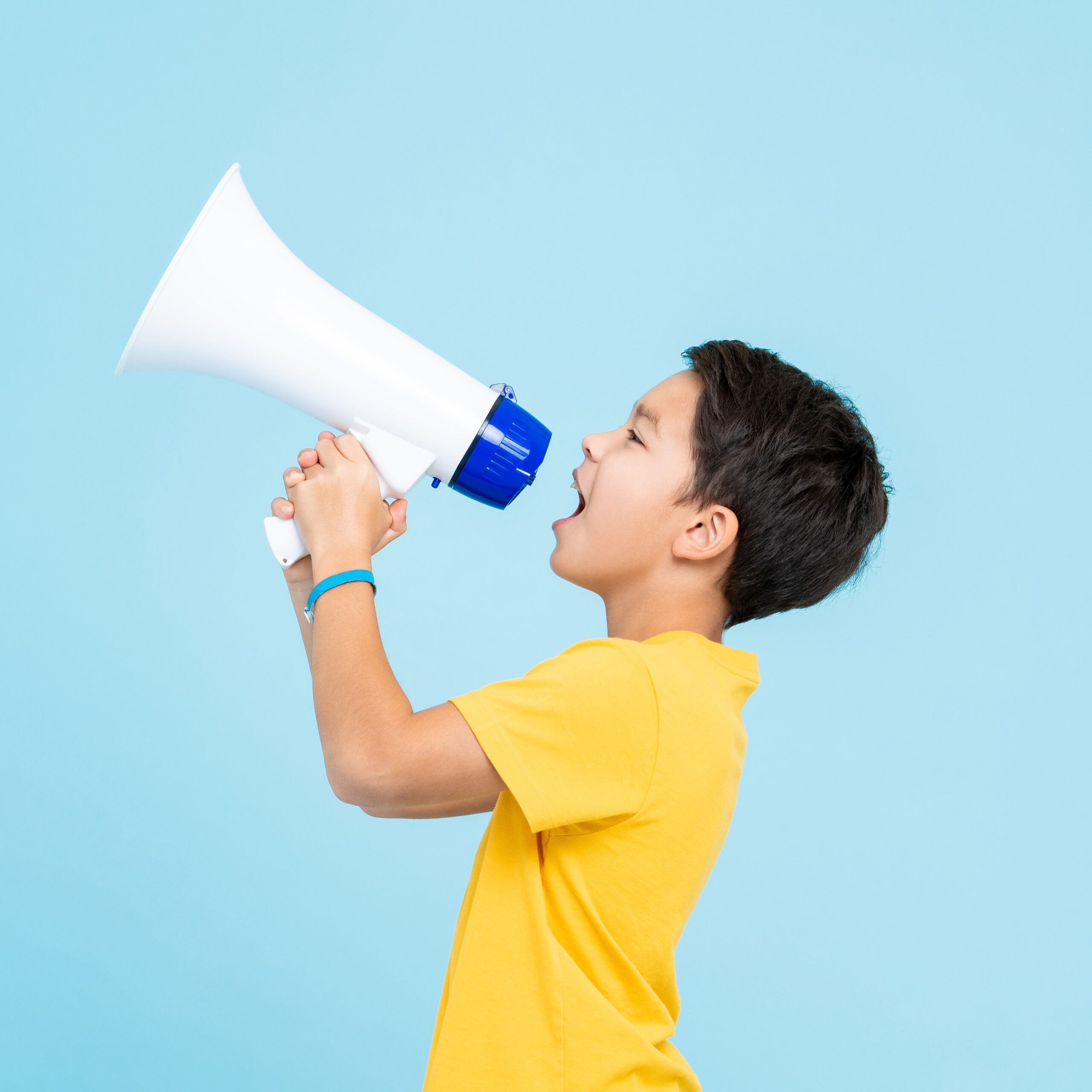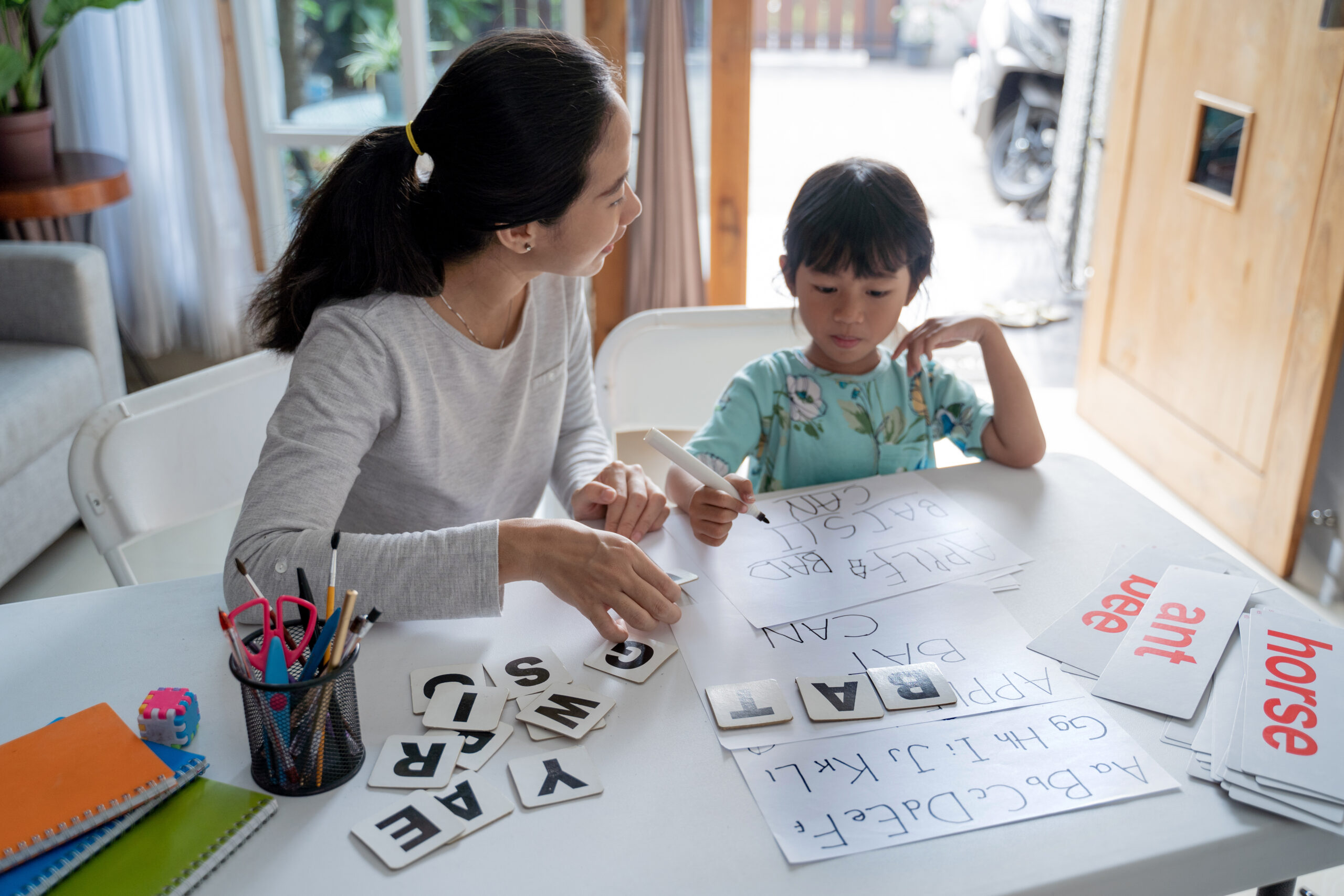The 2023 State Legislative Session is officially underway. Legislators are meeting with constituents, bills are being drafted and introduced, and committees are holding hearings!
Legislative leaders and Governor Walz have mentioned child care as a priority to address this session. As legislators introduce bills to address the challenges facing the field, it’s good to be aware of some of the work that’s already happening on this issue.
It’s also important to note that many young children, educators, and families need support to access quality child care now. It is possible to both plan for the future and invest funds now.
Three initiatives in progress passed during the 2021 Legislative Special Session:
- Great Start for All Minnesota Children Task Force
- Parent Aware Validation Study
- Licensing Regulation Modernization
From big picture vision to detailed rules changes, these efforts cover a lot of ground. Below is a brief description of each project along with links to learn more if you’re interested.
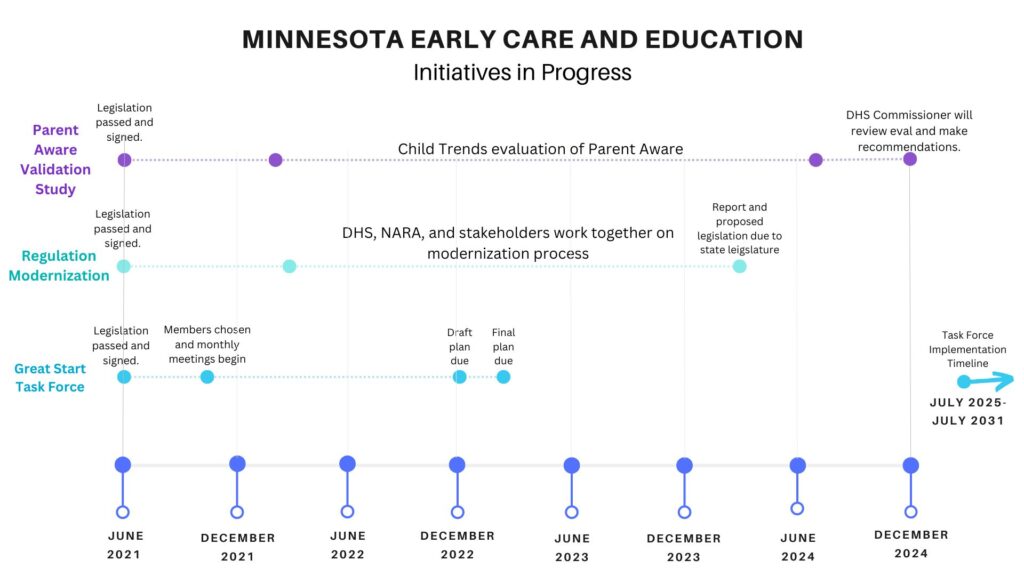
Great Start for All Minnesota Children Task Force
The goal of the Great Start Task force is to create a plan to accomplish the goal that “all families have access to affordable, high-quality early care and education that enriches, nurtures, and supports children and their families.”
More specifically, the plan must include an implementation timeline to achieve the following goals starting in July 2025 and finishing no later than July 2031:
- Creating a system in which family costs for early care and education are affordable;
- Ensuring that a child’s access to high-quality early care and education is not determined by the child’s race, family income, or zip code; and
- Ensuring that Minnesota’s early childhood educators are qualified, diverse, supported and equitably compensated regardless of setting.
This is a big task! The current early care and education “system” in our state is more like layers of programs and policies built on top of each other over time, rather than a coordinated and streamlined system.
The Task Force is made up of 15 voting members and 22 non-voting members. They created small groups on Family and Provider Affordability and Workforce Compensation and Supports in order to look more closely at these areas.
The Task Force submitted a draft report of their plan on December 15, 2022. They will submit a final report with recommendations on February 1, 2023.
You can learn more about the Great Start Task Force and view past meetings by visiting their website.
The next two projects–the Parent Aware Validation Study and Regulation Modernization–came out of recommendations from the Family Child Care Task Force. While the focus of that group was Family Child Care in Minnesota, these projects will have even more widespread impact on the entire field.
Parent Aware Validation Study
Parent Aware is Minnesota’s Quality Rating and Improvement System (QRIS). It’s a program to help families find quality child care and for child care programs to improve and demonstrate their quality.
Parent Aware has undergone previous evaluations and revisions. The current study will provide another look at the program, specifically focused on the outcomes for children, families, and the early care and education workforce. The evaluation will take place from March 2022 to July 2024 and will explore these topics:
- Children’s progress toward school readiness and changes in development over time
- The quality of early care and education across the state
- The availability of high-quality early care and education programs in Minnesota
- Parents’ experiences with quality in early care and education and opinions of Parent Aware
- Child care providers’ ability to serve children and families, including those from racially, ethnically, and culturally diverse backgrounds
Data collected will help the Department of Human Services (DHS) better understand effectiveness of the program and barriers to participation, which can inform any future updates to the program standards.
Child Trends will deliver a report by July 2024. The DHS Commissioner will review and make recommendations to present to legislators by December 2024.
Child Trends was awarded the contract to carry out the study. You can find more detail and updates about the project on their website.
Child Care Regulation Modernization Projects

Regulation Modernization is a project to update the child care licensing rules. Many of the regulations were created in the 1980s and have not been updated since then. There was widespread recognition that it would be helpful to take a new look at them. Rather than proposing legislation one-by-one to address outdated or unclear regulations, this project will look at the set of rules as a whole and make updates.
The Minnesota Department of Human Services (DHS) is contracting with National Association for Regulatory Administration (NARA) to complete this project. NARA has experience with this kind of work in other states.
There are three main components that they hope to accomplish with this project
- Risk-based tiered violation system. This will involve creating a tiered framework of licensing violations. Those that pose more risk of harm to children will receive greater enforcement/more serious consequences.
- Abbreviated inspections. Currently, all providers receive an annual inspection. An abbreviated inspection would allow providers who qualify to receive a shorter review that is focused on a specific subset of standards.
- Revise licensing standards. An overall update to reflect modern knowledge and practices. The proposed licensing standards must protect the health and safety of children and be child-centered, family-friendly, and fair to providers.
DHS and NARA are engaging stakeholders along the way. They will also pilot some of the efforts on smaller scales to see how they work before scaling up.
DHS will create a report and proposed legislation to submit to the state legislature by February 1, 2024. Learn more about the process, including opportunities for stakeholder engagement.
What It Means
It’s great to see work that addresses some of the biggest challenges and opportunities in early care and education. Planning intentionally for the future could help everyone more easily access what they need.
However, the work is not done! All of these projects will need legislative action to move forward. Even after the groups finish their tasks, there will be more work to enact any legislative changes. Advocates and legislative champions will need to continue to move the efforts forward.
There is still a need now. It’s important to plan for the future, but children, families, and educators need funding this session. With a state budget surplus, there are also funds available to invest now to make a difference.
By Marie Huey, Public Policy and Advocacy Staff Leader
